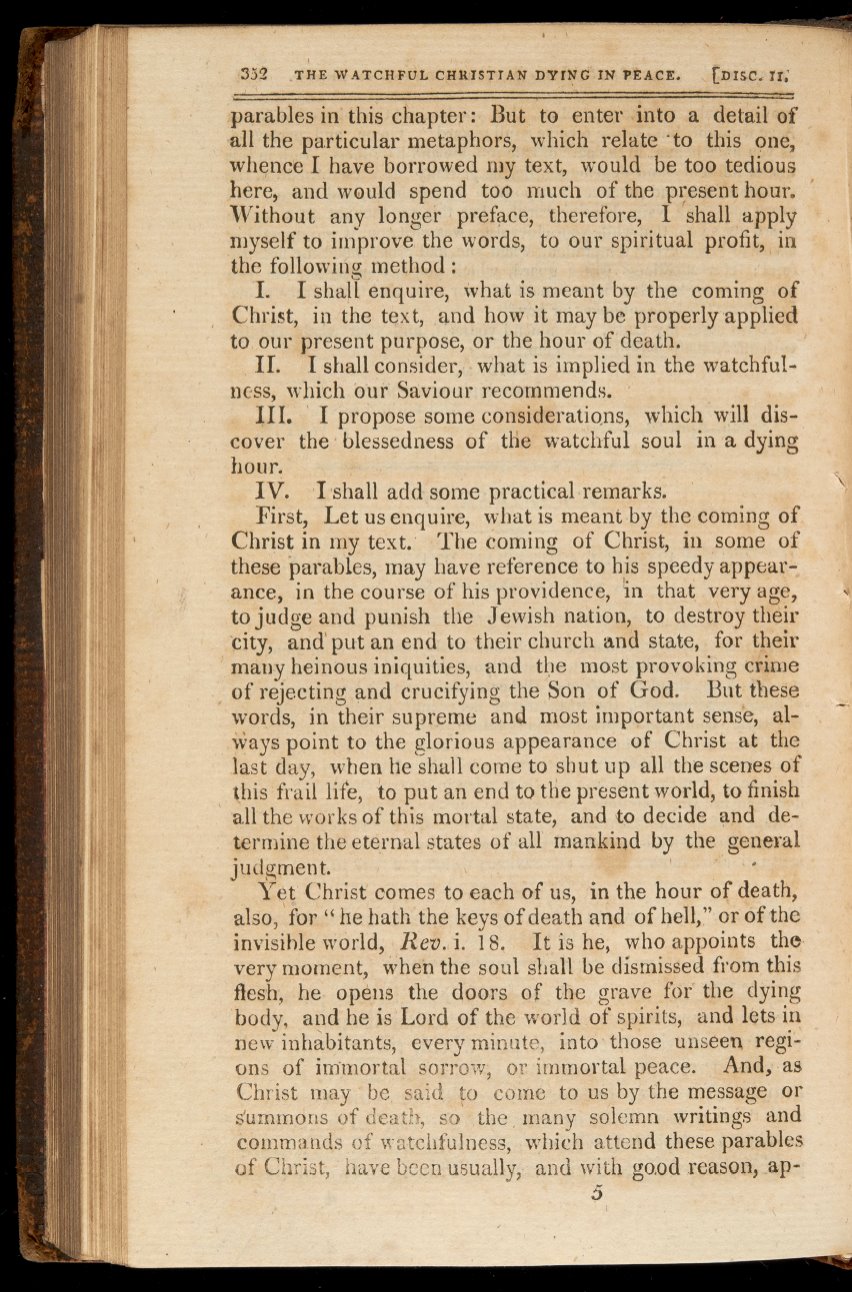

35?
THE WATCHFUL CHRISTIAN DYING IN PEACE.
[DISC.
7I>
parables
in this
chapter
:
But
to
enter
into a detail of
all the
particular
metaphors,
which
relate
-to
this
one,
whence
I
have
borrowed
my
text, would
be
too tedious
here,
and
would
spend too much
of
the
present
hour.
Without
any
longer
preface, therefore,
I
shall
apply
myself to improve the
words,
to
our spiritual
profit,
in
the
following
method
:
I.
I
shall
enquire, what
is
meant
by
the
coming
of
Christ, in the text,
and
how
it
may
be
properly
applied
to our present purpose,
or
the
hour of
death.
II.
I
shall
consider, what
is
implied
in
the watchful-
ness,
which
our
Saviour recommends.
III.
I
propose
some
considerations, which
will
dis-
cover
the blessedness
of
the watchful
soul in
a
dying
hour.
IV.
I-shall
add
some
practical
remarks.
First,
Let
us
enquire, what
is
meant
by
the coming
of
Christ
in my
text.
The
coming
of
Christ, in some
of
these parables,
may
have reference to
his
speedy
appear-
ance,
in
the course
of
his
providence,
in
that
very age,
to
judge
and punish
the
Jewish nation,
to destroy
their
'city,
and'
put
an end to
their
church and state, for
their
many heinous iniquities,
and the
most provoking crime
of
rejecting and
crucifying the
Son
of
God. But these
words, in
their supreme and
most
important
sense,
al-
ways
point
to the glorious appearance
of
Christ
at
the
last
day,
when
he shall come
to
shut
up
all the scenes
of
this frail
life,
to
put
an end to the
present
world,
to
finish
all
the works
of
this
mortal
state,
and to
decide and de-
termine the eternal states of all mankind
by
the general
judgment.
Yet
Christ
comes
to each
of
us,
in
the
hour
of
death,
also,
for
"
he
hath the
keys
of
death and
of
hell,"
or
of the
invisible world,
Rev.
i. 18.
It
is
he, who
appoints
the
very
moment,
when the soul shall
be dismissed from this
flesh,
he
opens
the
doors
of
the grave
for'
the
dying
body,
and
he
is
Lord
of
the world
of
spirits,
and lets in
new
inhabitants,
every minute,
into'
those unseen regi-
ons
of
immortal
sorrow, or immortal peace.
And,
as
Christ
may
be,
said
to
come to
us by
the
message
or
Summons
of
death,
so
the many solemn writings
and
commands
of
watchfulness, which
attend
these parables
of
Christ,
have been
usually, and with good
reason,
ap-
5

















